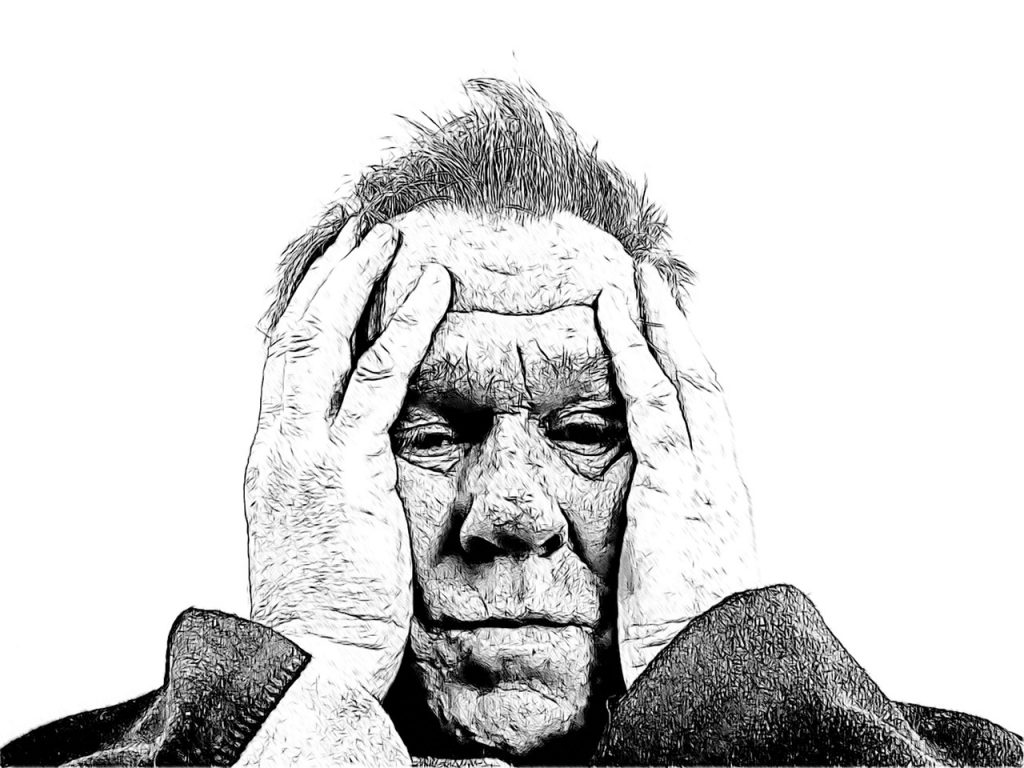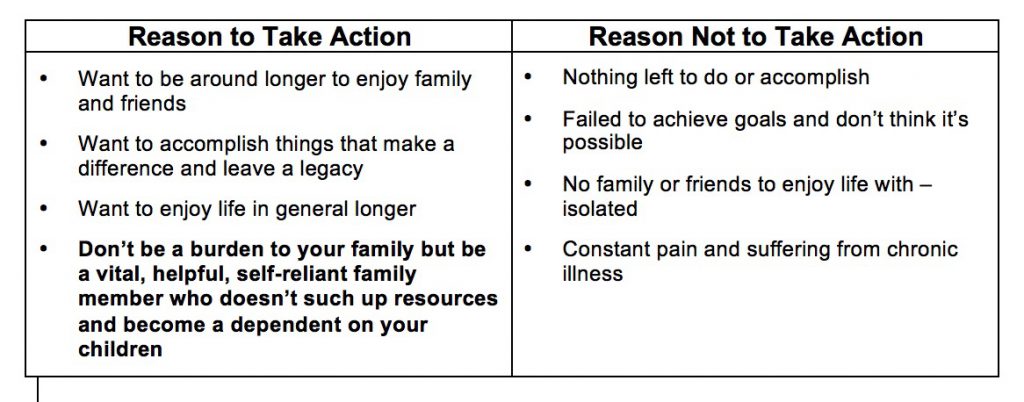A man hiking alone falls off a one thousand foot cliff and as he falls he grasps a root growing from the shear face of the cliff. As he hangs, he begins to shout, “HELP, HELP ME!!!” and suddenly the clouds part, a light shines down on him from the open clouds, and a booming voice says, “I will help you, simply let go of the root.” The man thinks for a while and then yells, “Is there anyone else up there who can help me?”
Why when there is so much evidence that disease is curable, preventable, and reversible, would a person continue to accept what they believe to be their fate?
Disease is just as much psychology as it is physiology. If we accept our “fate” then we generally close our ears to anything that sounds like a solution. We believe that having hope when there is none, is more painful than dying.
And if we are told that if we keep eating what we’re eating, we might keep eating it in moderation as if we wished to trade a few years for a meal we shouldn’t eat.
And in some ways we seem to think that living another 30 years disabled, crippled, and dependent on others is the same as living a vibrant, healthy, 30 years where others depend on us.
If we looked into the future and knew that our mild obesity would turn to diabetes, and eventually Alzheimers, would we continue on that path if we really believed it? Naturally, Alzheimers disease psychology is only useful before you become disabled and unable to think.
And the psychology of obesity only allows for solutions before you have developed diabetes and early onset dementia.
Even if we were to realize in our 50s and 60s where the road leads that we’re on, would we really believe it was preventable? Do we believe that we could make a change and turn things around?
Once diabetes sets in, research has shown that IQ begins to decline. The same is true of diabetes. These conditions lead to measurable brain shrinkage.
Do we believe that what we have to do would be too dramatic?
Take a walk once a day for 20 minutes?
Stand up and walk around every half hour?
Stop eating grains, sugar, and packaged foods?
Eat more green vegetables?
Drink more water?
Do these things sound like a world-ending sacrifice?
“But I can’t change.” Does anyone really believe that? Is that an excuse you can use to explain to your children why you’ll be leaving them early?
Or perhaps life is so difficult and stressful that we just decide to give it up and seek the peacefulness of death?
There may be a combination of things that we face all at once – not able to sleep well, in pain all the time, not getting help from our loved ones, not wanting to be a burden, no fun left in life, and facing criticism from our friends and loved ones (mostly unspoken) about why we refuse to take better care of ourselves, eat less, exercise more, and take better care of our appearance. How hard could it be?
As we get older, we fall out of the mainstream and people start to walk around us because we’re moving too slow and talk around us because we’re thinking too slow. The message from the outside world is – you’re done. You’re no longer useful.
Of course psychologists would tell us those thoughts are simply things we make up in our own mind – ways of talking to ourselves that isn’t true unless we make it so. And we know they’re right but we don’t seem to be able to see things any other way.
The thing that really differentiates us as we get older from our children and grand children is the ability to dream, to imagine something better, to think about how things would be if it all worked out great. When we see our children hitting 40 and 50, and we hear them talking about their discouragement with life we stop and wish we could do something to talk them into keeping hope, keeping the faith, looking for the good. Nothing worse than seeing someone who still have 50 good years left saying that it’s over for them. Talking about things they regret not doing or things they regret doing, when they still have 40-50 years left to redo it all.
And it’s especially difficult to listen to children who believe they can’t make a difference in the world and want to give up.
But why do we have such a hard time listening to that from others and entertaining it in ourselves?
I intended to be an inspiration to my family and friends. If I give up now just because I don’t think I’ve done that or don’t think I can, then chances are I never will be an inspiration. Why would I give up so easily when there are many generations at stake and if I give up I’ll simply be a semi-blank spot on the wall who did nothing in particular to remember him by?
Perhaps the psychology of disease is simply giving up our beliefs that we can truly make a difference. When we give up, there is a biochemistry that takes place in our body – it weakens our immune system, makes it harder to digest our food, shuts down the production of new cells including brain cells, and gives our body permission to just continue converting sugar to fat until we can’t function any longer.





 It has been scientifically proven that significant changes in diet and lifestyle can stop and even reverse type 2 diabetes, heart disease, and many other chronic diseases and even aging. Dr. Ornish does an excellent job of summarizing the case for these changes.
It has been scientifically proven that significant changes in diet and lifestyle can stop and even reverse type 2 diabetes, heart disease, and many other chronic diseases and even aging. Dr. Ornish does an excellent job of summarizing the case for these changes.

